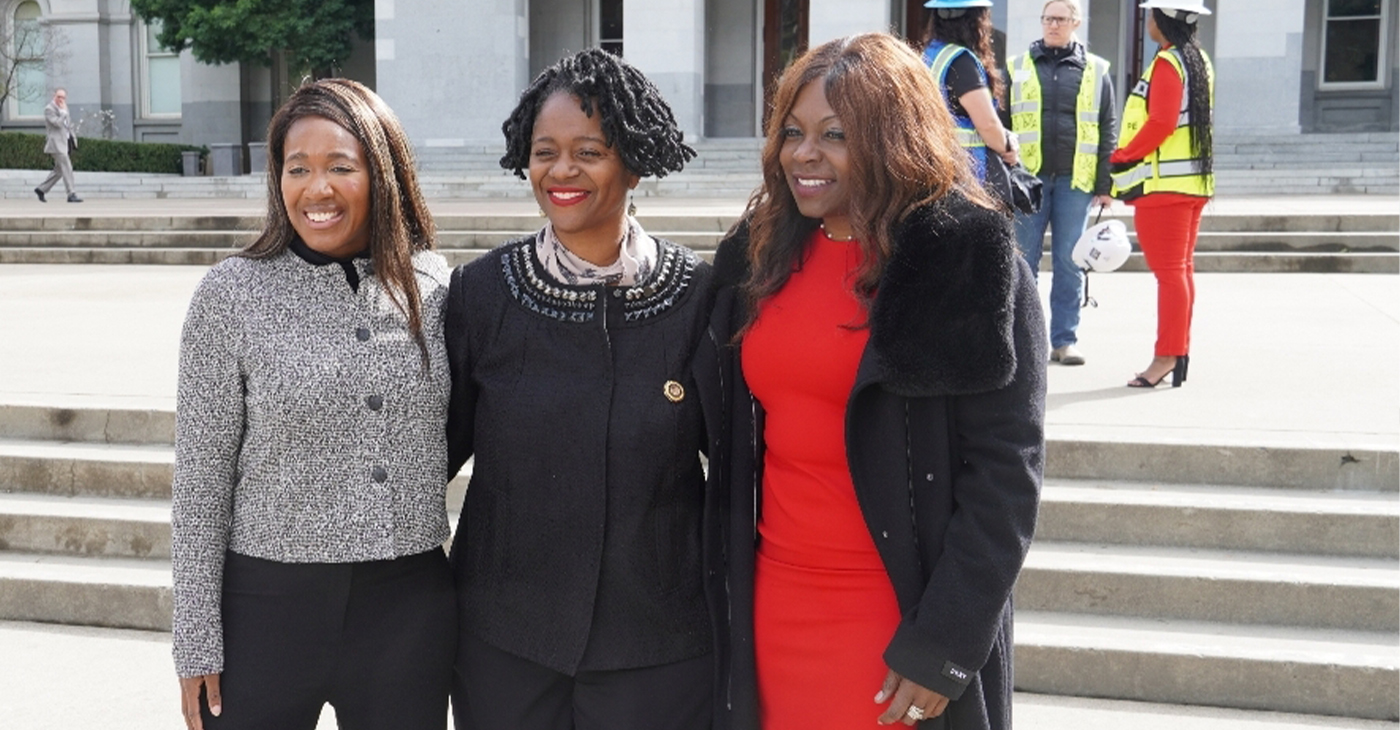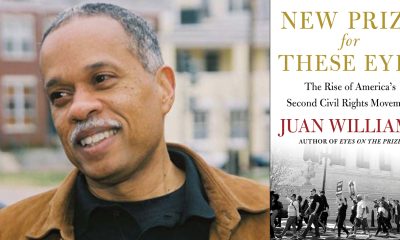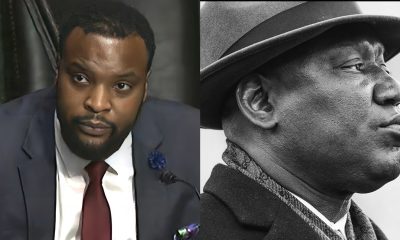National
Ferguson Grand Juror Sues to be Allowed to Talk About Case

In this Dec. 1, 2014 file photo, students participating in a die lie on the cafeteria floor at Clayton, Mo., High School following a grand jury’s decision not to indict a white police officer who killed 18-year-old black Michael Brown. (AP Photo/St. Louis Post-Dispatch, Cristina Fletes-Boutte, File)
JIM SALTER, Associated Press
ST. LOUIS (AP) — A member of the grand jury that declined to indict a Ferguson police officer in the shooting death of 18-year-old Michael Brown contends in a lawsuit filed Monday that the prosecutor in the case has wrongly implied that all 12 jurors believed there was no evidence to support charges.
The American Civil Liberties Union filed the lawsuit on behalf of the unnamed juror, who wants to be allowed to talk publicly about the case but could face charges for doing so because of a lifetime gag order. The juror also says he or she came away with the impression that evidence was presented differently than in other cases, with the insinuation that Brown, not Officer Darren Wilson, was the wrongdoer. No grand jurors have spoken publicly about the case.
Brown, who was black, was unarmed when he was fatally shot after an Aug. 9 confrontation with Wilson, who is white. The shooting in the St. Louis suburb led to widespread unrest, including some protests that resulted in local businesses being burned and looted. Protests again turned violent Nov. 24, when St. Louis County prosecutor Bob McCulloch publicly announced that the grand jury investigating the case had decided there wasn’t enough evidence to indict Wilson. Wilson has since resigned from the department.
“In Plaintiff’s view, the current information available about the grand jurors’ views is not entirely accurate — especially the implication that all grand jurors believed that there was no support for any charges,” the lawsuit says.
The suit was filed against McCulloch, who oversaw the investigation, because his office would be responsible for bringing charges against the juror. McCulloch’s spokesman, Ed Magee, said his office had not seen the lawsuit and declined immediate comment.
“Right now there are only 12 people who can’t talk about the evidence out there,” ACLU attorney Tony Rothert said. “The people who know the most — those 12 people are sworn to secrecy. What (the grand juror) wants is to be able to be part of the conversation.”
The suit also contends that legal standards in the case were discussed in a “muddled” and “untimely” manner. Jurors could have charged Wilson with murder or manslaughter, but nine of 12 would have needed to agree.
The suit does not seek to allow grand jurors in all Missouri cases to be free to discuss proceedings. But it argues that the Ferguson case was unique, and that allowing the juror to speak would be valuable to the national debate about race and police tactics that followed the shooting.
“The rules of secrecy must yield because this is a highly unusual circumstance,” Rothert said. “The First Amendment prevents the state from imposing a lifetime gag order in cases where the prosecuting attorney has purported to be transparent.”
After the decision was announced, McCulloch took the unusual step of releasing thousands of pages of witness testimony provided in secret to the grand jury. Grand jurors usually hear a condensed version of evidence that might be presented at trial, but the Ferguson grand jury heard more extensive testimony.
The panel — which included nine white and three black members — met on 25 separate days over three months, hearing more than 70 hours of testimony from about 60 witnesses, some of whom provided inconsistent versions of events. McCulloch acknowledged in a radio interview last month that some of the witnesses obviously lied to the grand jury.
Rothert said the grand jury convened in May and heard hundreds of other cases before devoting its attention to the Wilson case in August. The suit contends that McCulloch’s office handled the Wilson case far differently than the others, with “a stronger focus on the victim.”
Jim Cohen, associate professor at Fordham University Law School and a grand jury expert, said the lawsuit will add to concerns about how the case was handled.
“Believe me, there’s already more than a fair amount of skepticism about whether this process was fair, notwithstanding Mr. McCulloch’s cynical attempt to pretend that it was fair,” Cohen said.
Cohen believes the juror has a strong argument in the lawsuit.
“This matter has been discussed by virtually everybody in the universe with the exception of any person actually subjected to the presentation of evidence,” he said.
Last month, state Rep. Karla May, a St. Louis Democrat, asked a joint House and Senate committee to investigate whether McCulloch “manipulated” the grand jury. It wasn’t clear if the committee would take up that request. Messages were left Monday with May and state Sen. Kurt Schaefer, the committee’s chairman.
Copyright 2015 The Associated Press. All rights reserved. This material may not be published, broadcast, rewritten or redistributed.
Activism
Oakland Post: Week of March 28 – April 1, 2025
The printed Weekly Edition of the Oakland Post: Week of March 28 – April 1, 2025

To enlarge your view of this issue, use the slider, magnifying glass icon or full page icon in the lower right corner of the browser window.
Activism
Sen. Lola Smallwood-Cuevas Honors California Women in Construction with State Proclamation, Policy Ideas
“Women play an important role in building our communities, yet they remain vastly underrepresented in the construction industry,” Smallwood-Cuevas stated. “This resolution not only recognizes their incredible contributions but also the need to break barriers — like gender discrimination.

By Antonio Ray Harvey, California Black Media
To honor Women in Construction Week, Sen. Lola Smallwood-Cuevas (D-Los Angeles), a member of the California Legislative Black Caucus (CLBC), introduced Senate Concurrent Resolution (SCR) 30 in the State Legislature on March 6. This resolution pays tribute to women and highlights their contributions to the building industry.
The measure designates March 2, 2025, to March 8, 2025, as Women in Construction Week in California. It passed 34-0 on the Senate floor.
“Women play an important role in building our communities, yet they remain vastly underrepresented in the construction industry,” Smallwood-Cuevas stated. “This resolution not only recognizes their incredible contributions but also the need to break barriers — like gender discrimination.
Authored by Assemblymember Liz Ortega (D-San Leandro), another bill, Assembly Concurrent Resolution (ACR) 28, also recognized women in the construction industry.
The resolution advanced out of the Assembly Committee on Rules with a 10-0 vote.
The weeklong event coincides with the National Association of Women In Construction (NAWIC) celebration that started in 1998 and has grown and expanded every year since.
The same week in front of the State Capitol, Smallwood, Lt. Gov. Eleni Kounalakis, Assemblymember Josh Hoover (R-Folsom), and Assemblymember Maggie Krell (D-Sacramento), attended a brunch organized by a local chapter of NAWIC.
Two of the guest speakers were Dr. Giovanna Brasfield, CEO of Los Angeles-based Brasfield and Associates, and Jennifer Todd, President and Founder of LMS General Contractors.
Todd is the youngest Black woman to receive a California’s Contractors State License Board (A) General Engineering license. An advocate for women of different backgrounds, Todd she said she has been a woman in construction for the last 16 years despite going through some trying times.
A graduate of Arizona State University’s’ Sandra Day O’Connor College of Law, in 2009 Todd created an apprenticeship training program, A Greener Tomorrow, designed toward the advancement of unemployed and underemployed people of color.
“I always say, ‘I love an industry that doesn’t love me back,’” Todd said. “Being young, female and minority, I am often in spaces where people don’t look like me, they don’t reflect my values, they don’t reflect my experiences, and I so persevere in spite of it all.”
According to the U.S. Bureau of Labor Statistics, only 11.2% of the construction workforce across the country are female. Overall, 87.3% of the female construction workers are White, 35.1% are Latinas, 2.1% are Asians, and 6.5% are Black women, the report reveals.
The National Association of Home Builders reported that as of 2022, the states with the largest number of women working in construction were Texas (137,000), California (135,000) and Florida (119,000). The three states alone represent 30% of all women employed in the industry.
Sen. Susan Rubio (D-Baldwin Park) and the California Legislative Women’s Caucus supported Smallwood-Cuevas’ SCR 30 and requested that more energy be poured into bringing awareness to the severe gender gap in the construction field.
“The construction trade are a proven path to a solid career. and we have an ongoing shortage, and this is a time for us to do better breaking down the barriers to help the people get into this sector,” Rubio said.
Activism
Report Offers Policies, Ideas to Improve the Workplace Experiences of Black Women in California
The “Invisible Labor, Visible Struggles: The Intersection of Race, Gender, and Workplace Equity for Black Women in California” report by the California Black Women’s Collective Empowerment Institute (CBWCEI), unveiled the findings of a December 2024 survey of 452 employed Black women across the Golden State. Three-fifths of the participants said they experienced racism or discrimination last year and 57% of the unfair treatment was related to incidents at work.

By McKenzie Jackson, California Black Media
Backed by data, a report released last month details the numerous hurdles Black women in the Golden State must overcome to effectively contribute and succeed in the workplace.
The “Invisible Labor, Visible Struggles: The Intersection of Race, Gender, and Workplace Equity for Black Women in California” report by the California Black Women’s Collective Empowerment Institute (CBWCEI), unveiled the findings of a December 2024 survey of 452 employed Black women across the Golden State. Three-fifths of the participants said they experienced racism or discrimination last year and 57% of the unfair treatment was related to incidents at work.
CBWCEI President and CEO Kellie Todd Griffin said Black women have been the backbone of communities, industries, and movements but are still overlooked, underpaid, and undervalued at work.
“The data is clear,” she explained. “Systemic racism and sexism are not just historical injustices. They are active forces shaping the workplace experiences of Black women today. This report is a call to action. it demands intentional polices, corporate accountability, and systemic changes.”
The 16-page study, conducted by the public opinion research and strategic consulting firm EVITARUS, showcases the lived workplace experiences of Black women, many who say they are stuck in the crosshairs of discrimination based on gender and race which hinders their work opportunities, advancements, and aspirations, according to the report’s authors, Todd Griffin and CBWCEI researcher Dr. Sharon Uche.
“We wanted to look at how Black women are experiencing the workplace where there are systematic barriers,” Todd Griffin told the media during a press conference co-hosted by Ethnic Media Services and California Black Media. “This report is focused on the invisible labor struggles of Black women throughout California.”
The aspects of the workplace most important to Black women, according to those surveyed, are salary or wage, benefits, and job security.
However, only 21% of the survey’s respondents felt they had strong chances for career advancement into the executive or senior leadership ranks in California’s job market; 49% felt passed over, excluded from, or marginalized at work; and 48% felt their accomplishments at work were undervalued. Thirty-eight percent said they had been thought of as the stereotypical “angry Black woman” at work, and 42% said workplace racism or discrimination effected their physical or mental health.
“These sentiments play a factor in contributing to a workplace that is unsafe and not equitable for Black women in California,” the report reads.
Most Black women said providing for their families and personal fulfillment motivated them to show up to work daily, while 38% said they were dissatisfied in their current job with salary, supervisors, and work environment being the top sources of their discontent.
When asked if they agree or disagree with a statement about their workplace 58% of Black women said they feel supported at work, while 52% said their contributions are acknowledged. Forty-nine percent said they felt empowered.
Uche said Black women are paid $54,000 annually on average — including Black single mothers, who averaged $50,000 — while White men earn an average of $90,000 each year.
“More than half of Black families in California are led by single Black women,” said Uche, who added that the pay gap between Black women and White men isn’t forecasted to close until 2121.
-

 #NNPA BlackPress4 weeks ago
#NNPA BlackPress4 weeks agoTarget Takes a Hit: $12.4 Billion Wiped Out as Boycotts Grow
-

 Activism4 weeks ago
Activism4 weeks agoUndocumented Workers Are Struggling to Feed Themselves. Slashed Budgets and New Immigration Policies Bring Fresh Challenges
-

 #NNPA BlackPress4 weeks ago
#NNPA BlackPress4 weeks agoBREAKING Groundbreaking Singer Angie Stone Dies in Car Accident at 63
-

 Arts and Culture4 weeks ago
Arts and Culture4 weeks agoBeverly Lorraine Greene: A Pioneering Architect and Symbol of Possibility and Progress
-

 Activism3 weeks ago
Activism3 weeks agoOakland Post: Week of March 5 – 11, 2025
-

 #NNPA BlackPress1 week ago
#NNPA BlackPress1 week agoRev. Dr. Jamal Bryant’s Black Church Target Boycott Mobilizes 150,000
-

 #NNPA BlackPress4 weeks ago
#NNPA BlackPress4 weeks agoTrump Moves to Dismantle Education Department
-

 #NNPA BlackPress3 weeks ago
#NNPA BlackPress3 weeks agoFighting to Keep Blackness
























































